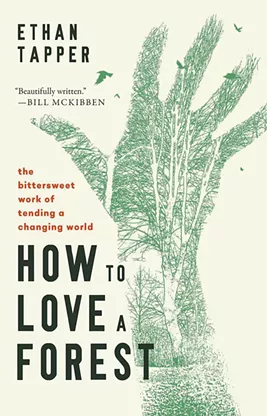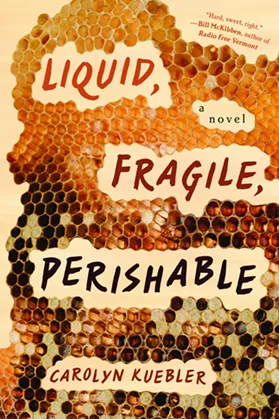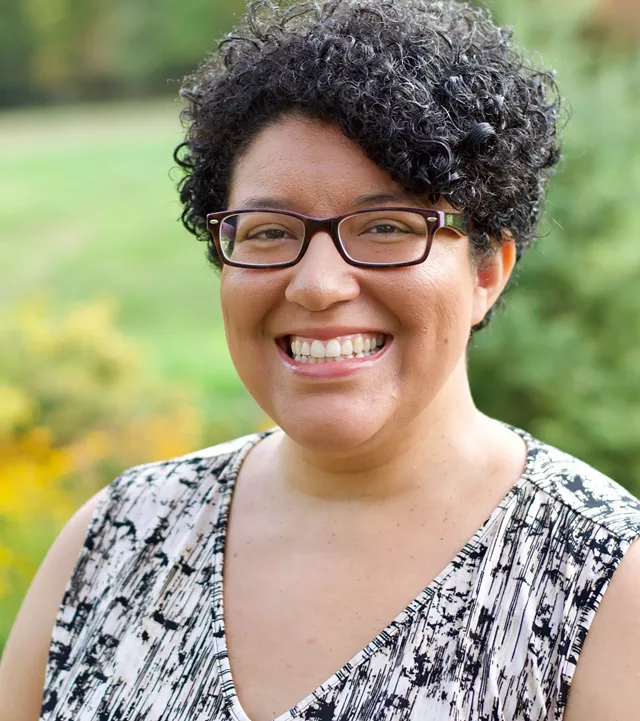A book about rethinking education systems through the lens of Henry David Thoreau. Poetry about postpartum depression. A novel about happenings in the fictional town of Glenville, Vt. All are among the locally written works honored as finalists in this year’s Vermont Book Awards, announced on Tuesday.
The awards — the state’s most prestigious literary honors — are a collaborative effort of Vermont Humanities and the state Department of Libraries. From 60 nominations, a panel of judges chose 15 finalists spanning four categories: creative nonfiction, fiction, poetry and children’s literature. Winners will receive a cash prize of $1,000 and objects crafted by Walden artist Nikki Ibey.
Finalists for creative nonfiction include Ethan Tapper’s How to Love a Forest: The Bittersweet Work of Tending a Changing World. Tapper, a forester and the front man in the local punk-rock band the Bubs, reflects on how caring for ecosystems sometimes paradoxically requires destroying parts of them, such as cutting down trees or hunting deer.
William Homestead’s Not Till We Are Lost: Thoreau, Education, and Climate Crisis takes readers inside a classroom and challenges the view of school as merely a pathway toward employment, advocating instead for its role in fostering self-discovery.
Rounding out the creative nonfiction category are two partly autobiographical works: Lucy Ives’ An Image of My Name Enters America, five interrelated essays about topics such as a childhood obsession with My Little Pony; and Adrie Kusserow’s The Trauma Mantras: A Memoir in Prose Poems, about different cultural conceptions of the ways people process trauma. Kusserow, chair of the Saint Michael’s College sociology and anthropology department, writes about her experiences as a relief worker and teacher in refugee communities around the world and in Vermont.
Finalists in the fiction category include M.T. Anderson’s Nicked, an NPR Notable Book of the Year. Set in 1087 and based on real events, the book follows a monk and treasure hunter looking to steal the bones of Saint Nicholas, rumored to have the power to cure a plague sweeping the Italian city of Bari.
A prolific writer, Anderson won the 2006 National Book Award for The Astonishing Life of Octavian Nothing, Traitor to the Nation, Volume 1: The Pox Party. He was a National Book Award finalist two other times — for Feed in 2002 and The Assassination of Brangwain Spurge in 2018.
Maria Hummel’s Goldenseal tells the story of two long-estranged friends who meet in a grand Los Angeles hotel. Seven Days’ Margot Harrison praised Hummel’s “wit and acumen” and called the book an “exquisitely evocative tale.”
Carolyn Kuebler is a finalist for Liquid, Fragile, Perishable, which portrays life in a small town with a plot that draws comparisons to Thornton Wilder’s Our Town. As Jim Schley wrote in Seven Days, “The fictional Glenville is a town that many Vermonters will recognize.” The book is Kuebler’s debut novel, though the author is no stranger to publishing: She cofounded the Minneapolis-based Rain Taxi Review of Books and serves as editor in chief of the quarterly New England Review, based at Middlebury College.
Perhaps the most fantastical of the fiction finalists, GennaRose Nethercott’s Fifty Beasts to Break Your Heart and Other Stories is a collection of short stories centered on imaginary creatures. Seven Days‘ Schley praised Nethercott for finding “shrewd ways of kneading together the weird capriciousness of folk myths, monster fables and ghost tales.” The recognition comes after Nethercott’s 2018 poetic parable, The Lumberjack’s Dove, was selected for the National Poetry Series by the late Nobel Prize winner Louise Glück.
Speaking of poetry, finalists in that category include Julia C. Alter’s Some Dark Familiar, an emotional and honest portrayal of motherhood; and Kellam Ayres’ In the Cathedral of My Undoing, about small-town rural life. Margaret Draft’s Nowhere Was a Lake explores themes of love and desire, and Alison Prine’s Loss and Its Antonym is about navigating grief after the narrator’s mother dies in a car accident and a sibling dies by suicide.
Two middle-grade books are finalists in the children’s literature category: Emma Hunsinger’s How It All Ends, a coming-of-age graphic novel; and Kekla Magoon’s The Secret Library, about a girl who finds a library filled with books that each offer a portal to another time.
Magoon was a 2021 finalist for the National Book Award for Young People’s Literature for her book Revolution in Our Time: The Black Panther Party’s Promise to the People, a history of the Black Panther Party written for teens.
Rounding out the children’s literature finalists is Tanya Lee Stone’s picture book Remembering Rosalind Franklin, about the female chemist often lost to history books who helped discover the structure of DNA.
Winners will be announced at a Saturday, May 3, celebration at the chapel in College Hall in Montpelier, with environmental journalist Bill McKibben as a keynote speaker.




